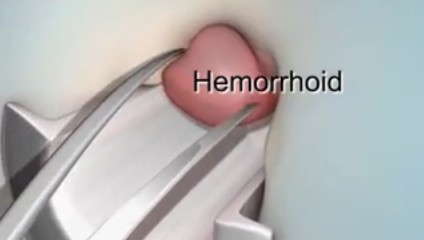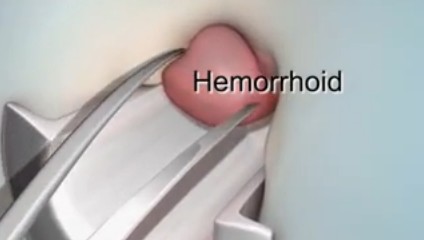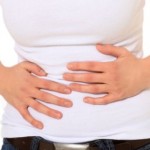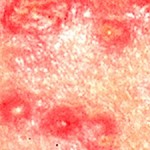Hemorrhoidectomy is a surgery that is undergone in order to remove Hemorrhoids. Hemorrhoids basically refer to swollen blood vessels that are found in the internal rectum or the external rectum. Most people forget having a proper diet when they have Hemorroids. It can be effectively managed by consuming 8 to 10 glasses of water per day and also by including a high fibre diet. Stool softeners are also used by many in this condition to reduce the straining that occurs during bowel movements. Since there would be an occasional itching or irritation, your doctor might prescribe you a tropical ointment too which in this case is not so bad.
Before a Hemorrhoidectomy surgery is commenced, the doctors give a general or spinal anaesthesia that take out the context of pain. This is a pretty simple surgery that can also be done with the help of a knife or electrical equipment and is mostly performed in a surgery centre. It does not take much of time and often, the patient is discharged the same day of the surgery.
Symptoms of Hemorrhoids
Hemorrhoids can initially be a hard thing to locate. Usually internal Hemorrhoids cause no pain and keep bleeding inside. However they can be dangerous and can cause a problem when they bleed heavily or prolapse.
External hemorrhoids on the other hand might bleed only after the bowel movements which make it easy for you to detect them. This is because they are exposed at all times and may cause itching or pain at random intervals of time.
Another complication of external hemorrhoids is that they form blood clots inside the vessel which more likely cause a sharp and severe pain in our body. However they are not life threatening in any way.
The Hemorrhoidectomy surgery comes in many variations such as the stapled Hemorrhoidopexy, Doppler-guided Hemorrhoidectomy, banding, Sclerotherapy and coagulation therapy.
- Stapled Hemorrhoidopexy:
People who have stapled surgery are known to have less pain compared to the ones who undergo a traditional one. The stapled surgery is a lot more expensive but at the same it assures the patients of never having hemorrhoids again.
- Doppler-guided Hemorrhoidectomy:
This is a procedure that intends on removing fewer tissues with the help of a special probe that locates the Hemorrhoidal arteries. A few researches have proven it to be less painful but further study needs to be done before it could be compared with other procedures.
- Banding:
This procedure mostly deals with treating the internal hormones by placing a tight band around the base of the Hemorrhoid to temporarily halt the blood supply. Banding itself is a procedure that requires two or more procedures to be done over the months. It is known to pressurize you and cause a bit of discomfort. It does not cause you any sort of pain otherwise.
- Sclerotherapy:
The objective of this procedure is to shrink the Hemorrhoid or stop it from bleeding and Sclerotherapy does exactly that by injecting a chemical into the hemorrhoid. Most people who have undergone this treatment have felt a little pain during the shot.
- Coagulation Therapy:
This is one of the unique treatments in this field which makes use of heat, extreme cold or infrared light in order to make the Hemorrhoid retract or shrink. It is known to cause no pain. However people have experienced a cramp and mild discomfort during this surgery.

Hemorrhoidectomy recovery
i) Some amount of pain is always expected after any surgery. In this case you might experience a bit of rectal and anal pain after the Hemorrhoid surgery. The pain is mostly killed off by a pin killer that most of the doctors prescribe after the surgery.
Self-recovery can also be done by:
- Using a stool softener to reduce the strains during the bowel movements.
- By consuming a high-fibre meal.
- Keeping your body hydrated with water at all times.
ii) Make sure you do not indulge in kind of extreme physical activities and stay away from lifting or pulling heavy things.
iii) The experiences of people have led us to the fact that a sitz bath can ease a lot of post surgical discomfort. A sitz bath generally requires you to soak the anal area in a few inches of warm water many times a day.
iv) Applying numbing medicines before and after the bowel movements can also help you endure the pain.
v) Ice packs can also be applied to the anal area to reduce the swelling and pain.
vi) Apply antibiotics recommended by your surgeon or doctor.
vii) Make sure you frequently visit your doctor to check for any newly arising problems. This can be done for two-three weeks after the surgery is completed.
A surgery usually cures a hemorrhoid condition completely. However it depends a lot on how you shape your life and eating habits after the surgery. Changing your daily bowel habits can also cure constipation and straining. A research showed that around 5 out of 10 people have reported occurrence of hemorrhoids after a surgery.
Post-surgery recommendations by the doctor:
- A complete makeover to your diet. Most probably high fiber diets will be suggested.
- Changing your way of living and losing a bit of weight.
- Exercising regularly is one of the most important things to be done.
These adjustments in your life after the surgery will take out every chance of hemorrhoid recurring and causing any threat to your life. So consult your doctor right away.


